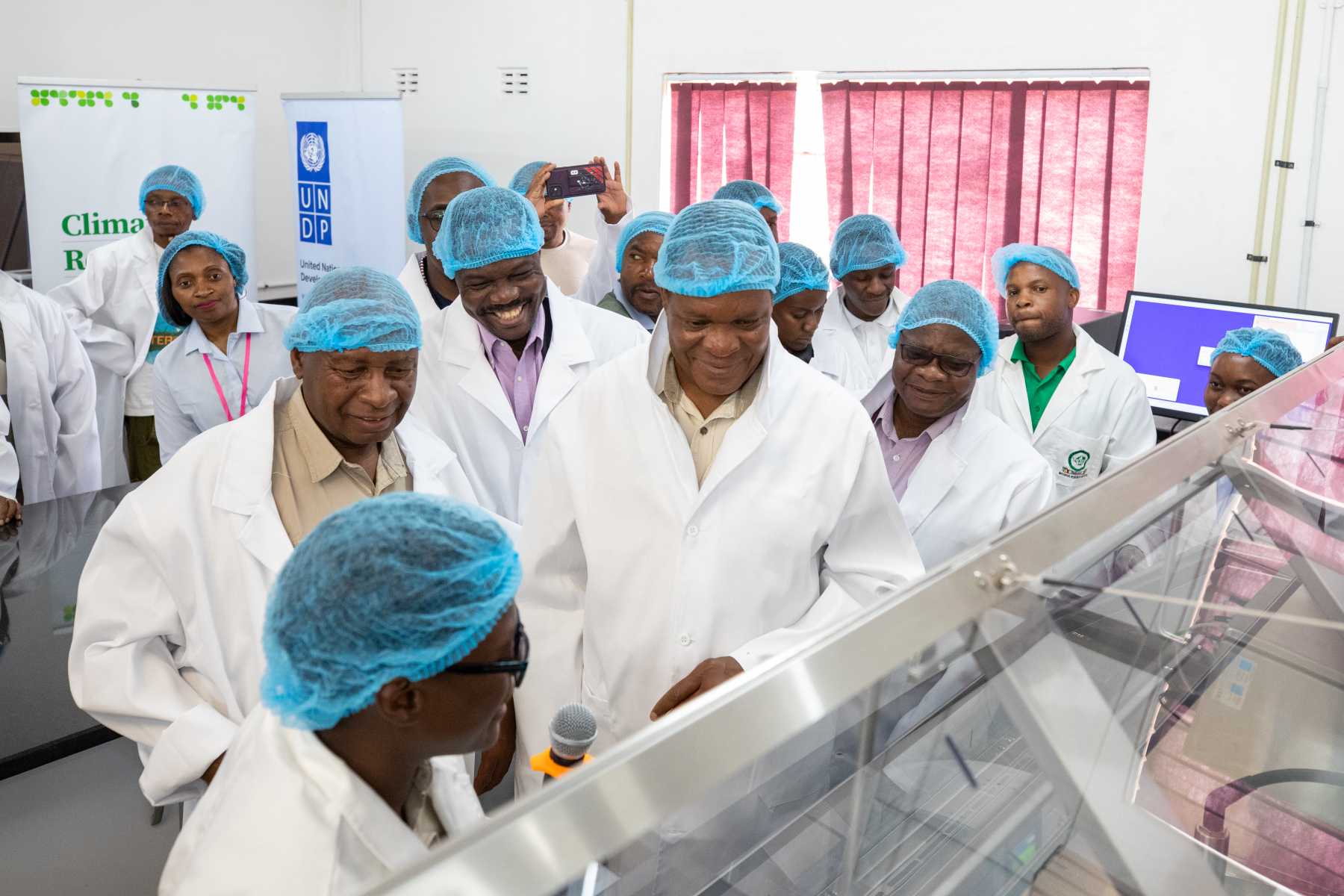|
Getting your Trinity Audio player ready...
|
Bulawayo, 19 October. 2024 – The Government of Zimbabwe, in collaboration with the United Nations Development Programme (UNDP), today, commissioned the largest livestock semen processing and cryopreservation centre in Zimbabwe at Matopos Research Institute.
The state-of-the-art gene bank equipment, valued at over $400,000, was commissioned by the Minister of Lands, Agriculture, Fisheries, Water and Rural Development (MLAFWRD), Hon. Dr. Anxious Masuka.
The centre, the second largest in Southern Africa, has a capacity to process three million livestock semen straws per year. The cattle semen processing and preservation centre will play a crucial role in preserving genetic diversity through the cryopreservation of semen from valuable livestock breeds, including indigenous and locally adapted breeds.
The Matopos Research Institute is a custodian of Zimbabwe’s Indigenous breeds (Tuli, Mashona, Afrikander and Nkone) and is availing these elite indigenous animal genetic resources to farmers at an affordable, cost-recovery basis.
Guest of honour at the event, Hon. Minister Dr. Anxious Masuka noted this milestone as a giant step towards attaining food security in Zimbabwe.
“This centre is among the Ministry’s efforts towards the attainment of the Agriculture Food Systems and Rural Transformation Strategy which seeks to increase agricultural productivity for national food security and food sovereignty, regardless of the weather,” he said.
Minister Masuka also remarked, “Our cluster remains a major contributor to key indicators of Zimbabwe’s economy – GDP, employment, growth of the rural economy and inclusive growth, export earnings, import substitution”.
The guest of honour also appreciated the project partners for establishing a centre that will benefit Zimbabwe and beyond.
Speaking at the ceremony, UNDP Representative Dr. Ayodele Odusola, stated “This partnership strengthens Zimbabwe’s national climate resilience agenda. Like much of sub-Saharan Africa, the country faces recurring climatic shocks that severely impact smallholder rain-fed agriculture, with far-reaching consequences for socio-economic development.”
“We believe that this support will complement the Government’s thrust to achieve the climate adaptation milestones as outlined in the country’s Revised Nationally Determined Contributions, he added.






